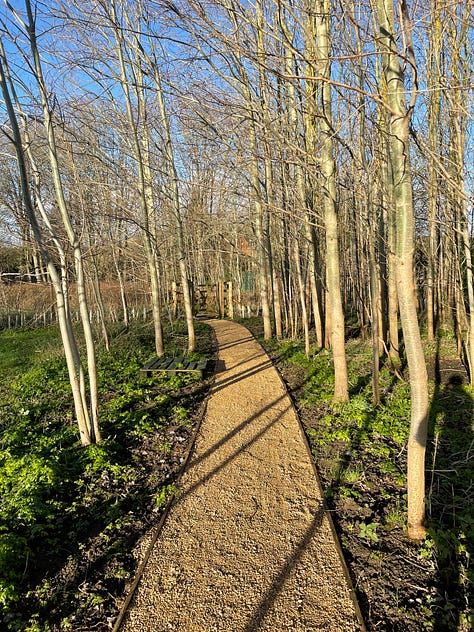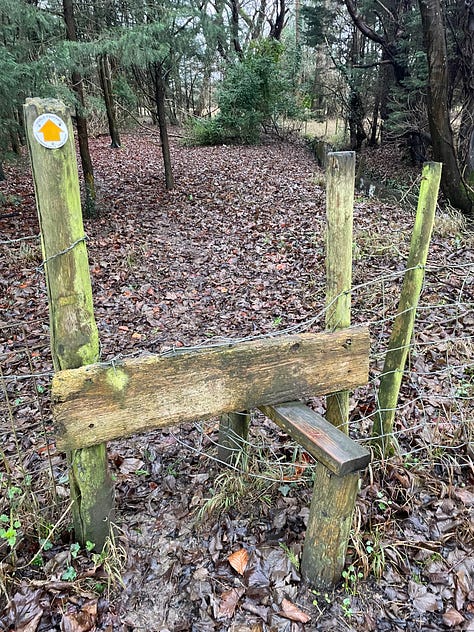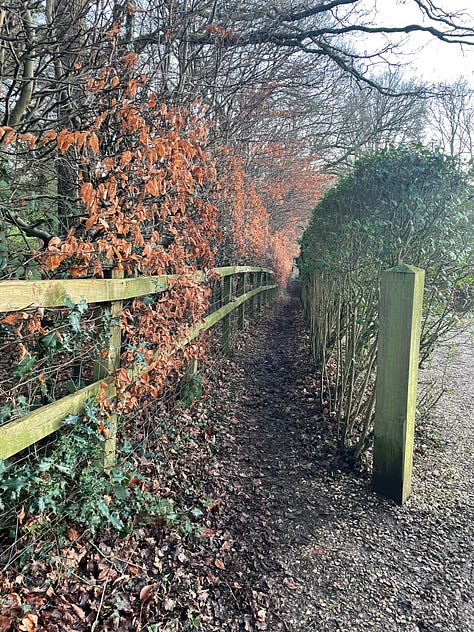I love 64 Million Artists’ January Challenge. You get emailed a daily prompt designed to help you bring creativity into your life in quick and easy ways. The scheme also encourages you to share your responses with others on social media. I signed up a few years back, when my creative spark was very nearly extinguished, and it gave me something fun and communal to cling on to. Since then, I’ve found other ways to stay inspired and connected (The London Writer’s Salon, my mini writer’s collective, a critical friend), but I still tap into the January Challenge because it aligns closely with my major waymark: to live creatively.
But what does that really mean? Creativity is used to signify so many different things and crops up in quite diverse contexts. In a job description, it might refer to your general ability to come up with new ideas or your specific expertise in the crafts of writing, graphic design, or advertising. In wellbeing terms, it’s a method for finding purpose or mindfulness. The word is just as often used to describe the quality of childhood play as it is to indicate successes in the fields of arts or science. And if we turn our attention to ‘creation’ rather than ‘creativity’, we’re suddenly in a world that encompasses both Genesis and YouTube, the origins of humanity and the proliferation of variable ‘content’.
There is also the question of who can really own creativity. Does it belong to those who are truly original? Those who regularly embark on slanting moves from commonplace, conventional understanding into true innovation; seeing, hearing, or tasting something that does not yet exist and bringing it into being. This suggests artistic genius, but some of the most creative people I know are engineers (not always known for their imagination), who can visualise solutions to problems I didn’t even realise existed. In Creation stories, our gods have to be invested in infrastructure and materials as well as meaning and aesthetics.



I like to set creativity alongside imagination. These concepts are regularly conflated, but I have a theory that there are subtle differences. Creativity suggests to me a restless and productive energy, whereas imagination feels like a background power source. While ‘to imagine’ might seem less palpable than ‘to create’ - more ‘airy-fairy’ - I wonder if imagination is, in fact, very much grounded in the everyday. Imagination builds on experience, recognises cause and effect, considers new ways of doing things inspired by imagery from the past and present. Creativity vaults over all that into the future. If creativity allows us to transition from the void to a new universe, imagination provides the vehicle for getting around.
I am still on the fence about my creativity, but I do think I have a strong imaginative capacity. I am a pragmatist, and I suspect that creative people tend towards optimism. Perhaps I’m putting too much weight on the original and transformative nature of creativity though. One scholarly text defines it as ‘the capacity to make, do or become something fresh and valuable with respect to others as well as ourselves’, and this might be the definition I adopt for the January Challenge. I love the generative potential of making, doing and becoming, and the notion that we can only be creative in relation to each other or ourselves, never in a vacuum.
Can you make, do, or become something fresh every day for the rest of January? The January Challenge is an effective way to ensure this happens, but don’t fret if you miss a day or two. Creativity doesn’t need a calendar!
Make some notes for an unlikely creative character. Many professions are unfairly maligned in this respect – accountants, traffic wardens, perhaps – and there are other odd assumptions that persist in narrative convention – for example, why are sheep considered less creative or imaginative than spiders? Reverse and challenge!
Write a short passage in which you cast your creativity and your imagination as characters going for a walk together. How do they interact with the world around them and each other?




Good advice here, thank you. A book that has helped me (a writer, not at all artistic in another sense) is Conscious Creativity by Philippa Stanton.
Happy creative January to you, friend. ❤️